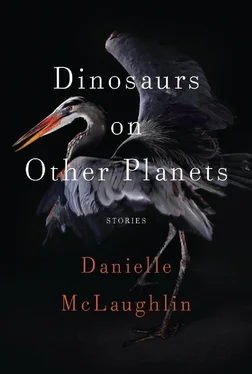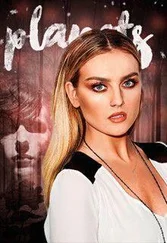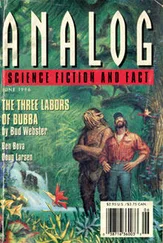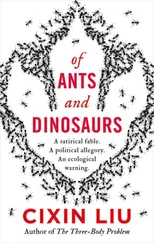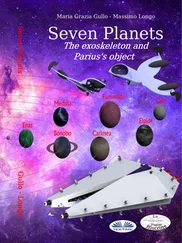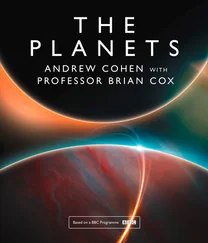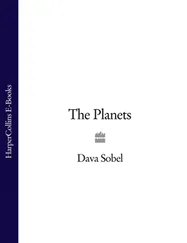Marcus turned to me. “Which do you think you’ll prefer?” he said. “English or French?”
And there it was again, another thing he knew about me. “English,” I said. “I don’t really like French.”
He put down his knife and fork, regarded me with curiosity. “Why study it, then?”
“My mother thought it would be useful to have a foreign language. For teaching.”
“So you want to be a teacher?”
Already I sensed it would be difficult to explain to Marcus how “want” had never been of much relevance in our house. “Yes,” I said. “I do.”
“I was a teacher once,” Lou Anne said. “I taught English for a year in Spain. The school was right by the sea.”
“Valencia,” I said. “We have a postcard of it.” On my mother’s dressing table there was a dog-eared card slotted into the mirror, a scene of a ruined white-walled house surrounded by wild orange trees. It had been there for as long as I remembered, so long that I’d never inquired about who’d sent it.
“I can’t believe your mother kept that,” Lou Anne said. “She was always too damn sentimental,” but I could tell that she was pleased.
“A sentimentalist,” Marcus said, “is one who desires to have the luxury of an emotion without paying for it.”
I thought he was explaining for my sake and was offended, because I did know what the word meant, even if I couldn’t have expressed it in that way.
“Marcus is studying philosophy at Trinity,” Lou Anne said. “We’re all the time reaping the benefits.”
“That was Wilde, actually,” Marcus said.
Now that Marcus had stopped eating, so had Cassie. She was fussing with her food, pushing pieces of ham to the edge of her plate, giggling when they toppled out onto the tablecloth. I waited for Lou Anne to correct her, but she didn’t. Marcus rapped his knife gently against Cassie’s plate — two sharp bell-like strikes as if he was about to make a speech — and she laughed. She picked up a piece of ham with her fingers and popped it into her mouth, continuing to giggle. She chewed with her mouth open, revealing a mess of pink masticated meat, so that we all looked to our own plates and the table grew quiet. Outside, a bus drew up, belched, hissed, and pulled away again, and as the last of the evening light settled upon the garden, I felt the first stirrings of a migraine.
—
MARCUS, I WOULD FIND out later, hadn’t been to lectures in over a year and was no longer enrolled as a student at the college, though he did go there from time to time, taking his satchel of books with him. He didn’t appear to have a job of any sort. The holed jumper had led me to believe his family was poor, but now I decided they were rich, the kind of rich where that sort of thing didn’t matter. He’d been living in the house for almost three years, and Cassie adored him. The Wednesday of that first week, I came home from college to find them at the side of the house, bouncing a ball against the gable wall. Someone had laid a patio — a botch job, my father would have called it, because a number of paving slabs were missing and others were loose. Cassie was in a long red skirt and white turtleneck. Her hair was free of the plaits and swung about her shoulders as she chased after the ball. Sometimes she caught it, but mostly it bounced on past. The weather was unusually warm and dry for early October, and every time the ball hit the ground it sent up a little explosion of dust.
I slipped my rucksack from my back and, running over, positioned myself between Marcus and Cassie. The game grew faster, the smack of the ball against the wall louder, the clouds of dust thicker. Then Marcus launched the ball against the wall so hard that when it rebounded it flew past me, striking the fence behind, knocking over a terra-cotta planter. Cassie shrieked, clapped her hands to her face, then burst into laughter, and soon we were all laughing, staggering breathless around the garden. I stopped to wipe my eyes and, looking to the house, saw Lou Anne watching from a window set high in the gable wall. I looked at the smashed planter, split clean down the middle, the earth spilling out onto the grass. Lou Anne opened the window. “That fence is already on its last legs,” she said. “Best not hurry it along.” Marcus picked up his jumper from the grass and, without saying anything to either me or Cassie, went ahead of us into the house.
There was a morning, not long after, when the door of Cassie’s room, usually kept closed, was open. Lou Anne was pulling sheets from the bed. “The district nurse is coming,” she said, when she saw me in the doorway. “I wasn’t expecting her until tomorrow but she rang to say her roster’s changed.” She looked drained. “Can I help?” I said. I expected her to say no, but she must have been especially tired, because she considered for a moment and said, “You could make the bed, I suppose.” She pointed to a pile of folded clean linen. “Two sheets at least, and tuck them in properly, otherwise she’ll only kick them off.” Marcus had gone out earlier. From downstairs I could hear the blare of the TV, Cassie watching her cartoons at full volume. When Lou Anne went to let the nurse in, I took a quick look about the room. It was a mess, clothes stuffed untidily into a laundry basket, shelves upon shelves crammed with old biscuit tins, shoe boxes, jars full of mismatched beads and copper coins and buttons. Lou Anne, I’d discovered, had a high tolerance for disorder. Her own bedroom downstairs had once been part of the kitchen, and her belongings were constantly migrating from behind the makeshift partition: tights draped over the backs of chairs, hairbrushes with clumps of red hair left beside the stove.
The nurse was round cheeked and blushing. “From the country,” Lou Anne whispered as we watched her lead Cassie away to be weighed on the bathroom scales. “She knows your mother’s aunts from Claremorris.” I’d finished dressing the bed, and, as I squeezed past Lou Anne to leave the room, I brushed against a tin on a lower shelf. The lid sprung open when it hit the floor, depositing a foul-smelling, ashlike substance onto the carpet. I bent to examine it and saw that it was the remains of dead insects, dozens and dozens of them, shriveled and desiccated. They could have been butterflies, or perhaps moths, because there were translucent slivers of what might once have been wings. Someone had pinned a number of specimens to a piece of board covered in green fabric, though only the furred barrels of their bellies remained.
“Quick,” Lou Anne said, “before Cassie sees,” and she dropped to her knees and began to scoop everything back into the tin. I joined in, but we weren’t fast enough. Already the nurse and Cassie were returning from the bathroom, arms linked. Cassie gave a little wail. She pulled away from the nurse and, rushing forward, caught me by the shoulder. I toppled backward onto the carpet and then she was on top of me, pounding, pummeling, grabbing my hair. She took a fistful of the gritty powder and mashed it into my face, forcing it past my lips and in between my teeth. Lou Anne and the nurse were shouting and pulling at her, but she was stronger than either of them. Only when she shifted her weight did I manage to free one of my hands, and then I slapped her, hard, across the face. She stopped instantly, frozen. She stared at me in dismay, and then, as if all the rage had gone out of her, she collapsed onto my chest, hugging me and crying loudly.
Lou Anne and the nurse lifted her off me and sat her on the bed. She was still crying, and Lou Anne held her, tried to calm her, humming a verse of a song she liked, stroking her hair. I jumped up and ran to the bathroom. I spat in the sink, rinsed my mouth out under the tap, and spat again. I got my toothbrush and scrubbed my teeth, my tongue, the crevices at the back of my gums, until my spit turned pink and the inside of my mouth felt raw. When I’d finished, I realized that I was shaking, and I held on to the sink to steady myself. I heard Lou Anne and the nurse come out onto the landing, talking in low voices: “It’s only going to get worse,” the nurse said. “She’s getting stronger all the time. How will you manage?”
Читать дальше
